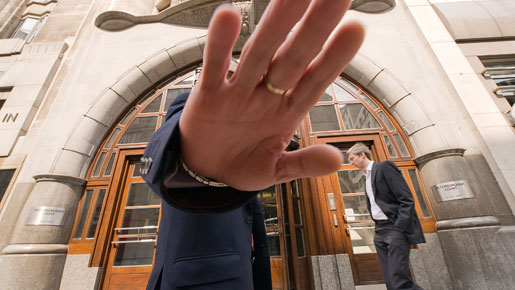
A German state bank said it had severed business ties with Goldman Sachs Group Inc , citing US regulators’ allegation that the dominant Wall Street bank committed fraud, while France eyed an investigation of its own.
Goldman is accused of defrauding investors by failing to say that prominent hedge fund manager John Paulson bet against a Goldman subprime debt product that he helped design.
In the latest sign that the SEC’s allegations could hurt Goldman’s standing with some customers, the SEC complaint was cited by German public sector bank Landesbank Bayern LB as it cut business ties with Goldman.
Another German bank, IKB Deutsche Industriebank AG, was one of the main investors in the Abacus synthetic collateralised debt obligation deal that is the focus of the SEC complaint.
Goldman, which is being investigated by the SEC and Britain’s market watchdog, is also attracting attention in France.
Economy Minister Christine Lagarde said recently that the accusations also warranted a full probe by French regulators. Regulator AMF (Autorite des Marches Financiers) said in mid-April that it planned to co-operate with the SEC over the Goldman case if necessary.
But archrival Morgan Stanley, which reported better earnings than expected, outperformed Goldman.
‘Fuel on the fire’
Goldman itself reported blowout earnings on April 20, but so far has gained little credit from investors who remain concerned about the fallout from the SEC accusations.
“Uncertainty abounds, and headline risk should drive near-term volatility,” Sandler O’Neill analyst Jeff Harte wrote in a research note, adding that he believed the “reputational and financial risks seem manageable.”
Newly released official documents showed that Goldman aggressively increased political campaign donations and lobby spending in Congress in early 2010, as the financial reform debate gathered momentum.
In another sign that Goldman and its Wall Street allies are struggling to gain traction in Washington, a US Senate committee approved a bill aimed at reforming the derivatives market, moving the Senate one step closer to passing sweeping regulation over the $450trn derivatives market.
The fraud charges against Goldman have added “some fuel on the fire” as US Congress pushes toward a financial reform package, Republican Sen. Richard Shelby noted.
Criticism from some quarters that the SEC suit was politically motivated was fueled by the revelation that the SEC’s commissioners split three to two on whether to pursue the complaint, with both Republican commissioners dissenting.
President Obama, who has made regulatory reform a cornerstone of his agenda, said “categorically” that the SEC had never discussed the case with the White House.
“They’ve never discussed with us anything with respect to the charges that will be brought,” Obama said in an interview with CNBC.
Rivals circle
Paulson said neither he nor anyone at the firm had received a so-called Wells notice indicating that charges might be filed against the fund, several investors who listened to the call said.
The company said that redemption requests are lower than usual at the moment. Investors have until April 30 to notify Paulson if they want their money back by the end of the second quarter.
Paolo Pellegrini, a former top executive at Paulson & Co, told investigators at the SEC that he had informed ACA Management LLC that his firm was betting against the transaction, The Wall Street Journal reported on April 21.
ACA was the outside manager tapped to oversee the transaction at the heart of the SEC complaint.
To lead their defence against the charges, Goldman has brought in Richard Klapper, a lawyer with an impressive record of courtroom victories for some of the biggest financial firms and a reputation as a fearsome litigator.
Rival institutions in Asia were seizing the chance to try to elbow in front of Goldman on major upcoming deals, sources familiar with the matter told reporters.
Investment bankers have been lobbying executives at state-owned Agricultural Bank of China and pushing officials in Beijing to drop Goldman as an underwriter for the bank’s more than $20bn IPO.
A survey of corporate executives ranging from CEOs to chief marketing officers found that a majority, 55 percent, felt that Goldman was guilty, while 21 percent viewed it as innocent and 24 percent were unsure, according to Argyle Executive Forum, an organiser of professional conferences.

